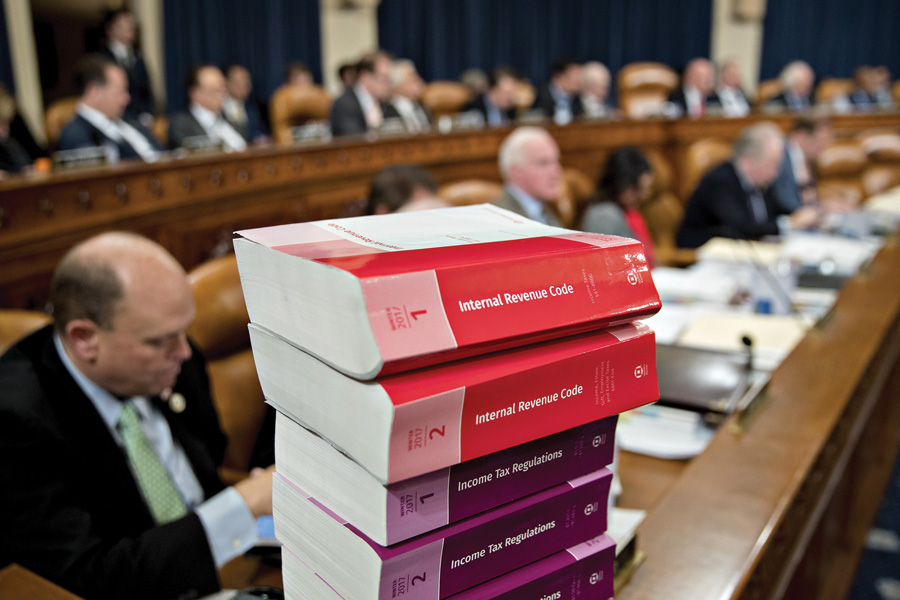

A bill that would impose a tax on high-volume financial transactions in New Jersey will be the subject of a hearing in the state Assembly next week.
The meeting Monday of the Financial Institutions and Insurance Committee likely will include a discussion of amendments that would lower the proposed tax rate and sunset the levy after two years, said Kevin McArdle, communications director for the General Assembly Democratic majority. The revisions would not be voted at Monday’s hearing.
The bill would impose a tax of $0.0025 per transaction on any person or entity that processes more than 10,000 transactions through electronic exchanges located in the state. The tax would apply to the purchase or sale of financial securities, including futures, options and swaps contracts as well as derivatives and stocks. An amendment likely to be floated on Monday would reduce the tax to $0.0001.
The tax has generated strong resistance from the New York Stock Exchange, Nasdaq and TD Ameritrade, which have threatened to move their trading operations out of the state.
The sponsor of the bill, Assemblyman John F. McKeon, D-Essex, is not backing down. He said the tax will help bolster New Jersey’s budget.
“It is disappointing that as opposed to being part of the solution, the NYSE is threatening to take its ball and go home,” McKeon said in an emailed statement Thursday. “We are ready and willing to work with stakeholders to hear their concerns, but we must come from a place of fairness. We need to explore all options that could help our state during this fiscal crisis. At the end of the day, New Jersey families are our priority.”
It’s not clear when the bill will be amended or voted on in the Assembly. The next voting day for the legislature is Oct. 29, but the measure may not be ready for action by then, McArdle said.
An identical bill has been introduced in the Senate by Senate President Stephen M. Sweeney, D-W. Deptford. A Senate Democratic aide said there is no Senate timeline for the bill.
A financial transactions tax has been promoted by Democratic lawmakers in Congress and has the support of the Democratic presidential candidate, former Vice President Joe Biden.
Financial services lobbying groups, such as the Securities Industry and Financial Markets Association, oppose a financial transactions tax, asserting that it is the equivalent of a sales tax on investors.
Brian Graff, president of the American Retirement Association, cautions that the cost of the tax would be passed on to retirement accounts. He said more than two-thirds of participants in 401(k) plans earn less than $100,000 annually.
“It’s going to cover retirement savers, and that’s a lot of middle- and low-income people in New Jersey,” Graff said. “The folks in New Jersey recognize that doing this at the state level is complicated.”
Zach Gladney, a partner at the law firm Alston & Bird, doubts a transaction tax will be approved in New Jersey because the stock exchanges could easily relocate to other states, such as Connecticut.
“That service industry in New Jersey will no longer exist if the tax is passed,” Gladney said. “It’s just too portable of a business. It’s going to be long term more detrimental to New Jersey than helpful.”
Financial industry lobbyists are girding for a fight in Congress next year, depending on the outcome of the election. Democratic majorities on Capitol Hill likely would try to advance a trading levy.
“A financial transactions tax is something we’re going to be closely monitoring as a potential threat,” Graff said.

Canadian stocks are on a roll in 2025 as the country prepares to name a new Prime Minister.

Two C-level leaders reveal the new time-saving tools they've implemented and what advisors are doing with their newly freed-up hours.

The RIA led by Merrill Lynch veteran John Thiel is helping its advisors take part in the growing trend toward fee-based annuities.

Driven by robust transaction activity amid market turbulence and increased focus on billion-dollar plus targets, Echelon Partners expects another all-time high in 2025.

The looming threat of federal funding cuts to state and local governments has lawmakers weighing a levy that was phased out in 1981.
RIAs face rising regulatory pressure in 2025. Forward-looking firms are responding with embedded technology, not more paperwork.
As inheritances are set to reshape client portfolios and next-gen heirs demand digital-first experiences, firms are retooling their wealth tech stacks and succession models in real time.
